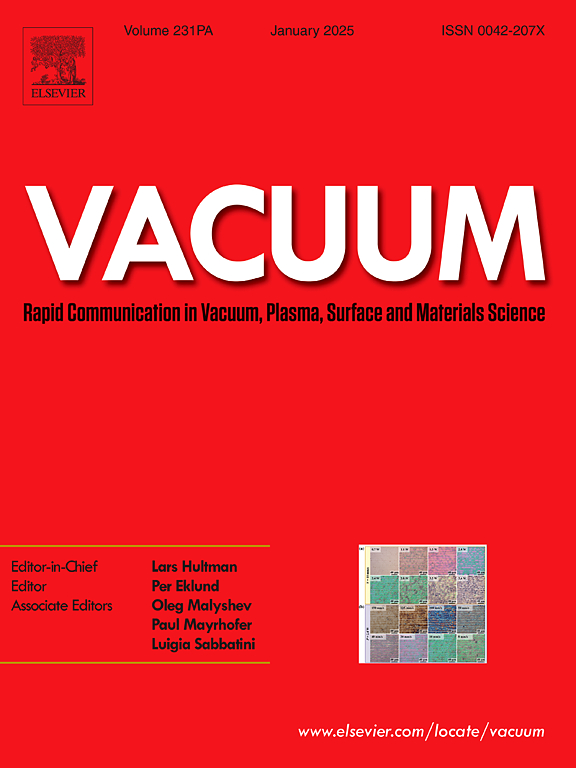Fabrication of thin carbon-backed target of 185Re by evaporation technique and self supporting target of 170Er by cold rolling technique for the study of nuclear reaction dynamics
IF 3.8
2区 材料科学
Q2 MATERIALS SCIENCE, MULTIDISCIPLINARY
引用次数: 0
Abstract
Thin, durable and uniform self-supporting isotopic targets of 170Er and 185Re targets with carbon backing have been fabricated by using cold-rolling and high vacuum evaporative deposition techniques respectively at Inter University Accelerator Centre (IUAC) target laboratory, New Delhi. For the fabrication of 185Re, e-Gun (electron-Gun) evaporation technique was used. The thickness obtained for 170Er was around 2.1 mg/cm2 and for 185Re, it was 200 g/cm2 with a carbon backing of 50 g/cm2. Using characterization techniques such as energy dispersive X-ray spectroscopy (EDX), Rutherford backscattering spectroscopy (RBS), energy loss technique, and X-ray diffraction, the thickness and elemental composition of the targets were analyzed. These measurements essentially exhibited no contamination, indicating their excellent purity and durability. Both the targets were used in nuclear experiment performed at NAND (National Array of Neutron Detectors) facility, IUAC, New Delhi to study the nuclear reaction dynamics. For such kind of study, one needs pure targets without any contamination to ensure that the neutron data is coming only from the reaction of interest. For mass distribution measurements, thin target (100–200 g/cm2) is the requirement.
求助全文
约1分钟内获得全文
求助全文
来源期刊

Vacuum
工程技术-材料科学:综合
CiteScore
6.80
自引率
17.50%
发文量
0
审稿时长
34 days
期刊介绍:
Vacuum is an international rapid publications journal with a focus on short communication. All papers are peer-reviewed, with the review process for short communication geared towards very fast turnaround times. The journal also published full research papers, thematic issues and selected papers from leading conferences.
A report in Vacuum should represent a major advance in an area that involves a controlled environment at pressures of one atmosphere or below.
The scope of the journal includes:
1. Vacuum; original developments in vacuum pumping and instrumentation, vacuum measurement, vacuum gas dynamics, gas-surface interactions, surface treatment for UHV applications and low outgassing, vacuum melting, sintering, and vacuum metrology. Technology and solutions for large-scale facilities (e.g., particle accelerators and fusion devices). New instrumentation ( e.g., detectors and electron microscopes).
2. Plasma science; advances in PVD, CVD, plasma-assisted CVD, ion sources, deposition processes and analysis.
3. Surface science; surface engineering, surface chemistry, surface analysis, crystal growth, ion-surface interactions and etching, nanometer-scale processing, surface modification.
4. Materials science; novel functional or structural materials. Metals, ceramics, and polymers. Experiments, simulations, and modelling for understanding structure-property relationships. Thin films and coatings. Nanostructures and ion implantation.
 求助内容:
求助内容: 应助结果提醒方式:
应助结果提醒方式:


